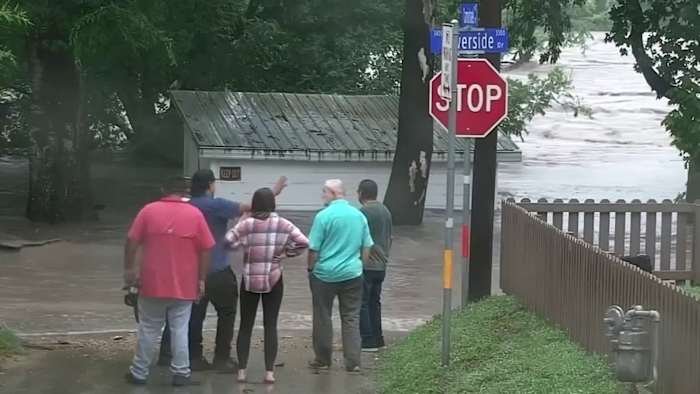KERRVILLE, Texas – Stress most commonly affects people’s bodies during the 30 days following a crisis, regardless of whether they were in the disaster zone.
Repeated images of unbearable tragedy and stories of loss in the Texas Hill Country have many people’s brains and bodies reacting.
“I’ll brief people on acute stress symptoms. I’ll normalize it. I’ll train people to say, ‘Hey, this is actually common,’” said Professional Counselor Kelly Harris.
Harris has been in the Hill Country helping families, first responders and the general public since the Fourth of July.
It’s something that she’s done before after deadly shootings in Sutherland Springs and Uvalde.
Now, Harris is seeing the same community reactions in the Hill Country.
“A lot of times, people have shame, guilt and blame. I call them the triplets. And we may think, ‘What could I have done? Could I have something different?’ So we’ll come in and talk about how that’s normal, and how to reframe and flip those thoughts,” Harris said.
Agencies are calling Harris to train their staff on how to identify acute stress in their coworkers, friends, and loved ones, even if they’re not directly affected by the floods.
“They may have a deer-in-the-headlights look, they may have their eye twitching, they may have their heart racing, they may be sweating and not realizing it, they might not be sleeping well, they may be starting to avoid and stay inside,” Harris said.
Harris said that dreaming about traumatic events and feeling overly stimulated is common, too.
“Our head becomes on a swivel, and so what we notice is there is a hyper vigilance, but it’s an overreaction to anything, so noises are a big thing, smells are a thing. We get jumpy,” she said.
Harris said anyone who is noticing these symptoms, especially after 30 days since the traumatic event started, should consider talking to a counselor about it.
“There are lots of clinicians and therapists who are in this area, and they are here for you,” Harris said.
Harris has worked with the Ecumenical Center for a decade and said their free services have helped heal communities; she hopes people struggling will reach out.
She said it is also important to prioritize healthy eating, sleep and exercise.
“Those things may seem simple, but that will help your body regulate,” Harris said.
Although it may evoke emotions, Harris said that talking to people about how you’re feeling can offer relief and even a sense of connection to others who may be experiencing the same thing.
The Ecumenical Center in San Antonio has field offices all over the region, including the Hill Country. The main number is (210) 616-0885.
Related coverage on TheTXLoop
Copyright 2025 by TheTXLoop – All rights reserved.
